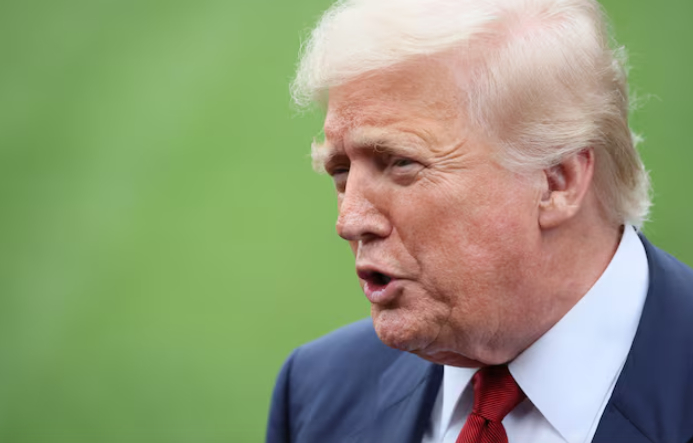
In August 2025, US President Donald Trump signed an executive order targeting discriminatory debanking in the banking industry, prohibiting financial institutions from refusing service based on a client's political affiliation, religious beliefs, or industry. This move not only shocked the financial community but also reflected the profound nexus between US politics and financial regulation.
The Trump administration has consistently accused mainstream US banks of political bias, particularly discriminatory cuts against conservatives, cryptocurrency companies, and industries like energy and firearms. Republicans have repeatedly complained that Wall Street giants are closing accounts based on "reputational risk," hindering financing for small and medium-sized businesses and certain groups. The closure of the Trump Organization's own account by Capital One has brought this conflict to the forefront. Against this backdrop, the executive order is seen as a rebuttal to financial regulation dominated by "political correctness."
According to the White House, the executive order directs federal banking regulators to remove the "reputational risk" assessment criteria and prohibits financial institutions from debanking clients based on their ideology. If violations are found, regulators have the authority to fine the banks involved or take other remedial measures. Furthermore, the Department of Justice will investigate cases of "debanking" based on religious discrimination, and the Small Business Administration will be required to help restore service to customers who were illegally denied service. Trump emphasized that financial decisions should be based on objective risk analysis, not political stances.
For the cryptocurrency industry, the executive order could be a lifeline. In recent years, many banks have denied crypto businesses accounts due to anti-money laundering or compliance risks. This ban is expected to alleviate their financing difficulties. However, traditional financial institutions face dual pressures of regulation and business ethics: on the one hand, they must comply with the executive order to avoid penalties, while on the other hand, they must strike a balance between compliance and risk management. Republican state governments have pushed legislation threatening to restructure banks found to have engaged in "political discrimination," further exacerbating tensions between the banking industry and the government.
Supporters argue that the ban protects the financial rights of small and medium-sized enterprises and minorities and prevents financial institutions from becoming political tools. Critics warn that removing the "reputational risk" criterion could weaken banks' ability to mitigate systemic risks. The core of the 2010 Dodd-Frank Act is to prevent financial institutions from becoming "too big to fail." Excessive deregulation risks a repeat of the 2008 financial crisis. Furthermore, the executive order has been accused of interfering with banks' commercial autonomy, raising deep concerns about Trump's "deregulation" policies.
Trump's economic policies have consistently centered on "relaxing regulations and activating markets." From his campaign promise to repeal Dodd-Frank to the current "de-banking" ban, the logic remains consistent: excessive regulation stifles business vitality, while political interference in finance undermines the foundations of the free market. As an entrepreneur, he emphasizes that the financial system should serve the real economy, not become a battleground for ideological debate.
The effectiveness of the executive order faces legal challenges. Democratic lawmakers have indicated they will introduce legislation to challenge the policy, arguing that it violates financial institutions' anti-money laundering and compliance obligations. The courts may become the next battleground: Is the removal of the "reputational risk" standard by regulators unconstitutional? What are the limits of enforcement of fines? Furthermore, the weakening of global central banks' confidence in the US dollar (e.g., the recent trend of "de-dollarization") may exacerbate the fragility of the US financial system. Whether Trump's "liberalization" reforms can withstand external risks remains uncertain.
Trump's executive order has opened an ideological divide in US financial regulation: on one side, those defending market freedom and opposing political discrimination, while on the other, those upholding systemic risk and compliance. This debate not only concerns the restructuring of financial industry rules but also reflects the enduring tension between freedom and order in American society. The future balance of financial regulation will be a key test of the resilience of the US economy.

On January 4th local time, Trump warned India that if it does not limit its purchase of Russian oil, the United States will continue to raise tariffs on Indian products. Trump's latest warning sent shockwaves through the Indian financial market in just one day.
On January 4th local time, Trump warned India that if it do…
In October 2025, the US trade deficit narrowed unexpectedly…
According to the British media CoinJournal, recently, due t…
In January 2026, US President Trump once again set his sigh…
Europe is facing a crucial strategic choice: In the face of…
On New Year's Day 2026, BMW China announced a "systematic v…